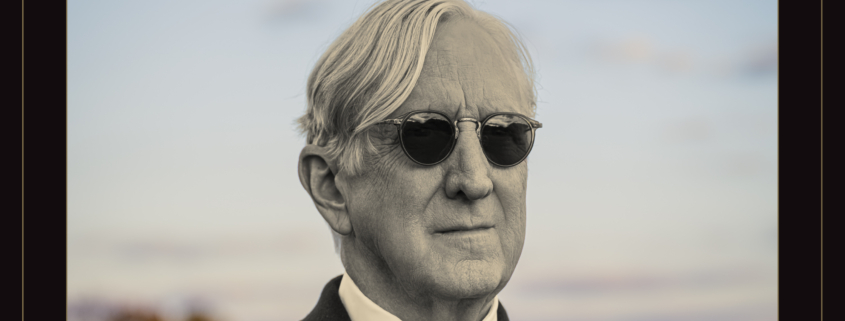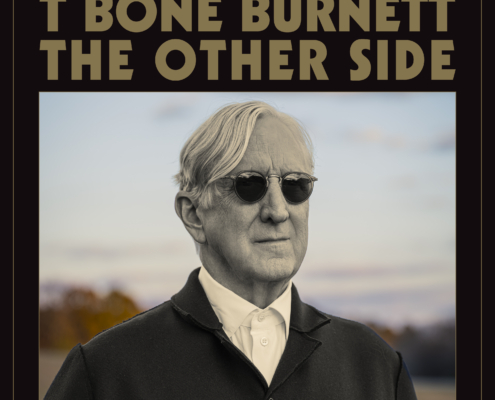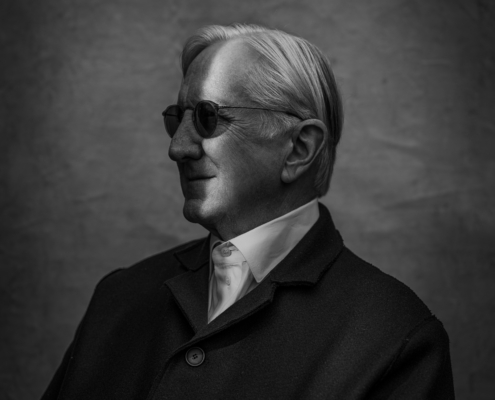
T Bone Burnett – The Other Side
- He Came Down 4:33
(T Bone Burnett) - Come Back (When You Go Away) 2:57
(T Bone Burnett) - (I’m Gonna Get Over This) Some Day 3:16
Featuring Rosanne Cash
(T Bone Burnett)
- Waiting For You 2:59
Featuring Lucius
(T Bone Burnett/Colin Linden)
- The Pain Of Love 2:27
Featuring Lucius
(T Bone Burnett)
- The Race Is Won 3:18
Featuring Lucius
(T Bone Burnett)
- Sometimes I Wonder 3:46
Featuring Weyes Blood
(T Bone Burnett/Colin Linden)
- Hawaiian Blue Song 3:35
Featuring Steven Soles
(T Bone Burnett/B. Neuwirth/S. Soles)
- The First Light Of Day 2:51
(T Bone Burnett/Steven Soles)
- Everything And Nothing 2:45
(T Bone Burnett/Gary Nicholson)
- The Town That Time Forgot 4:04
Featuring Lucius
(T Bone Burnett/Peter More)
- Little Darling 3:30
Featuring Lucius
(T Bone Burnett)
T Bone Burnett: Vocals, Acoustic Guitar, Electric Guitar
Colin Linden: Dobro, Acoustic Guitar, Electric Bass / Dennis Crouch: Bass /
Rory Hoffman: Dobro, Clavichord, Clarinet, Acoustic Guitar / Stuart Duncan: Mandolin, Violin / Jay Bellerose: Clapping, Tambourine / Michael Piersante: Clapping, Tambourine
Guest Vocals: Rosanne Cash, Lucius,
Weyes Blood, Steven Soles (+ Acoustic Guitar)
Mit dem aus den beiden Alben „Acoustic Space“ (2019) und „Spells“ (2022) bestehenden, als Trilogie angelegten Werk „The Invisible Light“, hatte sich Grammy- und Oscar-Gewinner T Bone Burnett in Zusammenarbeit mit den Kollegen Jay Bellerose und Keefus Ciancia an einer Verschmelzung von Trance, elektronischer, Folk-, Tribal- und Weltmusik in Form eines „experimentellen Liedzyklus“ versucht. Die beiden elektronisch geprägten Alben beschäftigten sich mit der These, dass unsere Gesellschaft über ein Jahrhundert lang elektronischer Programmierung, einer sogenannten „Programmierpandemie“, unterworfen wurde, die dazu führt, dass wir unsere Fähigkeit verlieren, Fakten von Fiktion zu unterscheiden. Der deutsche ROLLING STONE schrieb damals, Burnett wolle „mit besonderem Nachdruck vor den Gefahren des Metaverse warnen“.
Anstatt den düsteren und von hochintellektuellen Gedanken und Thesen durchzogenen Zyklus zu beenden, hat sich T Bone Burnett jetzt allerdings während der Arbeit an „The Invisible Light Vol. 3“ einem anderen Projekt zugewandt, „The Other Side“, einem humaneren, seinen Hörern mehr zugewandten Projekt, das statt elektronischer Klänge den Weg zurück zu traditionelleren Blues-Sounds findet: „The Other Side“. Mit Gast-Sänger/innen wie Rosanne Cash und Lucius veredelt, präsentiert das Album einen zugänglicheren T Bone Burnett, der allerdings verspricht, seine Trilogie über moderne Technologie und ihre Auswirkung auf den Menschen demnächst zu beenden.
INFO
When T Bone Burnett was making his new record The Other Side, he was thinking a lot about “you.”
“I was reading a news story that some shocking percentage of number one hit songs had the word you in the title,” says the Oscar- and Grammy-winning composer-producer-songwriter, well known for his work with everyone from Robert Plant and Alison Krauss to Brandi Carlile to Elton John and on iconic soundtracks including O Brother Where Art Thou and Walk the Line.
Burnett started contemplating who all those “you”s are and what it means when an artist puts them in a song.
Burnett says he realized that for many years, when he worked on his own solo albums as a singer-songwriter — in between acclaimed stints of coaxing the best work out of a wildly diverse set of artists as a producer or curating ideal soundtracks for an equally disparate group of films and series — he had been “tough” on listeners.
“I view the purpose of art as creating conscience, so I was constantly appealing to people’s consciences,” he says of a solo career that stretches back to the mid-‘70s and includes several well-reviewed albums including 1992’s The Criminal Under My Own Hat. “But I realized when a songwriter uses the word you, he is, of course, in the world of conscience, but he’s also in the world of people’s dreams. And when you enter into people’s dreams, you have to be very careful with them.”
And the man born Joseph Henry Burnett knows about the power of dreams. As a teenager, he had a recurring nightmare. He and other members of his Episcopal church were lined up around the walls of the parish hall where people’s right hands were being replaced with electronic tracking devices that could be controlled by shadowy black figures who lorded over a larger dystopian landscape.
“As I was already playing guitar at that time, I would wake up in a cold sweat saying ‘I can’t do this. I’ve got to get out of here!’” says Burnett, now 75, but still crystal clear on the details of the dystopia. That nightmare sent him off on a study of writers and philosophers, including Marshall McLuhan and Jacques Ellul, whose ideas about the ways in which technology threaten humanity would inform much of his work over the course of his career including, most recently, his sci-fi-oriented The Invisible Light series.
“In the early 2000s, I walked into a coffee shop and saw everyone on their phones,” he recalls. “I realized, ‘Oh, they didn’t have to cut our hands off. They just put the control device in our hands.’ I began going deeper and deeper into this dystopia until I decided several years ago that I wanted to write my way out of it which is how the Invisible Light project started.”
Burnett often wondered what would happen if he ever did make it to freedom from the hellscape of that dream. Now he knows: The Other Side, a clutch of songs that reflect a new outlook and approach Burnett didn’t even know he was seeking and featuring old friends Rosanne Cash and early bandmate Steven Soles, newer artists Lucius and Weyes Blood, and longtime trusted musical companions including Dennis Crouch, Stuart Duncan, Jay Bellerose, and Rory Hoffman.
The album is a haunting 12-song collection that has a loose love story at its center following a couple that may no longer be of this plane. The mood is by turns eerie and spectral — the graveyard-set “Sometimes I Wonder” featuring Weyes Blood and the ghostly “Waiting For You,” one of several songs dusted with Lucius’ vocal magic — and suffused with both melancholy and playfulness — the warmly Cash-backed “(I’m Gonna Get Over This) Some Day” and the catchy couplets of “Everything and Nothing,” co-written with Gary Nicholson and inspired by the witty, economic wordplay of Broadway genius Frank Loesser. The album also features some of the richest vocals of Burnett’s entire career, as he deploys a more melodic tone throughout, creating a new accessibility where he had previously been more idiosyncratic.
Co-produced by Colin Linden — whose Nashville studio served as home base — and Mike Piersante, in that high-fidelity fashion for which Burnett is known that makes you feel like you are in the room with the band as they make their way through the songs like the dreamy, Orbisonian ballad “Hawaiian Blue Song,” featuring Soles, Burnett calls The Other Side a country blues album. That rootsiness is quite the 180 from the mechanized electronics of the Invisible Light records from 2019 and 2022.
While at work on the planned third installment in that series, Burnett says, “I invented some people called ‘the listeners’ who were able to hear pure tone, and therefore were able to distinguish, for instance, between an AI voice and a human voice. They were able to distinguish between fact and faction. Inventing those people and finding tone as the way through this dystopia, the way through the lies, I found a hole in the dystopia that I was able to pass through. And when I passed through that hole, all of these songs on this record started pouring in.”
He set aside the Invisible Light project as songs from The Other Side arrived, seemingly unbidden, as he played some new guitars he had recently bought.
“I had to record them because I loved them,” says Burnett who attributes the variance in his vocals to his discovery of a new tone for himself.
“I shifted from writing in my head to writing in my chest, and I shifted from singing in my head to singing in my chest because I realized my tone had been in service of this complete other drama that I was living in,” he says. “But now that I had escaped the dystopia, a whole other world opened up to me and it was thrilling to just have a melody come out of a guitar. There were all these songs in these guitars. And they just came all at once, over probably a three-week period.”
He augmented this musical bounty on the other side of the nightmare with a few songs that he had been tinkering with, including “Town That Time Forgot,” co-written with Peter More for a theatrical project, “Hawaiian Blue Song,” which dates back to the mid-‘70s, and the mythical album opener “He Came Down” which was inspired by Burnett’s wife, the Oscar-winning screenwriter-director-producer Callie Khouri (Thelma & Louise, Nashville).
“That was just an ad-lib trying to explain something to her about folk music one morning at the kitchen table and Callie said, ‘record that right now.’ She knew,” says Burnett, of his partner’s keen instincts. “In a way all the songs are about Callie, because I have to say, she’s a very loving woman,” he says. “I’m so grateful to her for the way she’s opened me up to the possibilities of love.”
Those possibilities extended to two other parties: his audience, of the “you” outside of himself to whom he wanted to be more inclusive and, crucially himself. Burnett sought to care for himself as an artist in the same manner he has helped shepherd so many others in the studio.
“With this record, I tried to treat myself as kindly as I would try to treat other people,” says Burnett, who likens his producing approach to that of a photographer. “I try to find the person’s best angle and light them so they look the most like themselves or the best version of themselves. And this time, rather than staying in the romantic notion I previously had of myself—of a rebellious artist, a firebrand or whatever I thought I was trying to be—I just tried to be kind to myself.”
Ultimately, in looking for “you,” T Bone Burnett found himself on The Other Side.
Sara Rodman
Weitere Infos in unserem Presseportal unter
https://journalistenlounge.de – bitte dort über den Genrefilter „Jazz“ anwählen!
PR Radio
Universal Music Jazz (Deutsche Grammophon GmbH)
Mühlenstr. 25, 10243 Berlin
CD 00602458768183 / LP 00602458939934 VÖ: 19.04.2024


